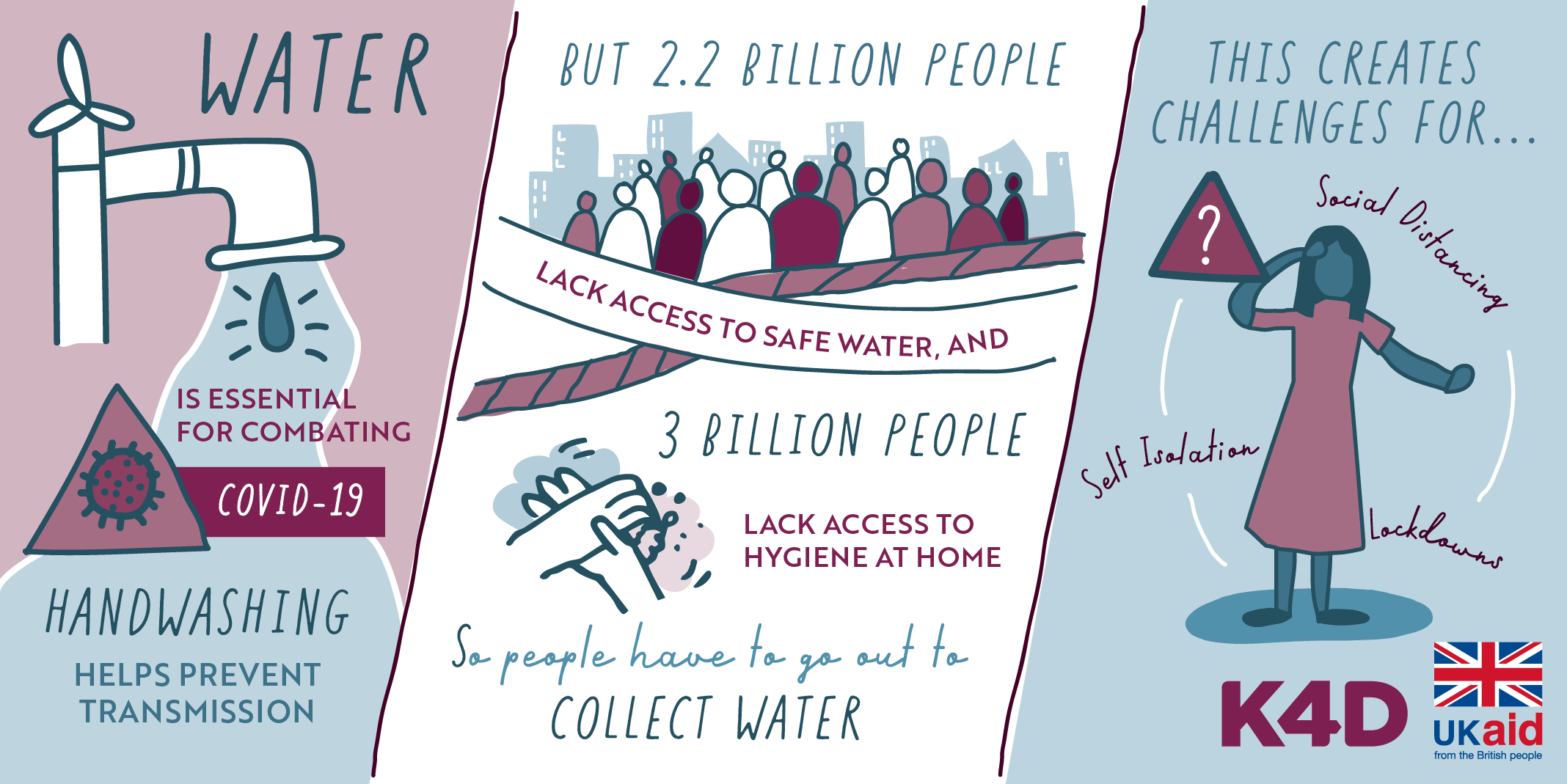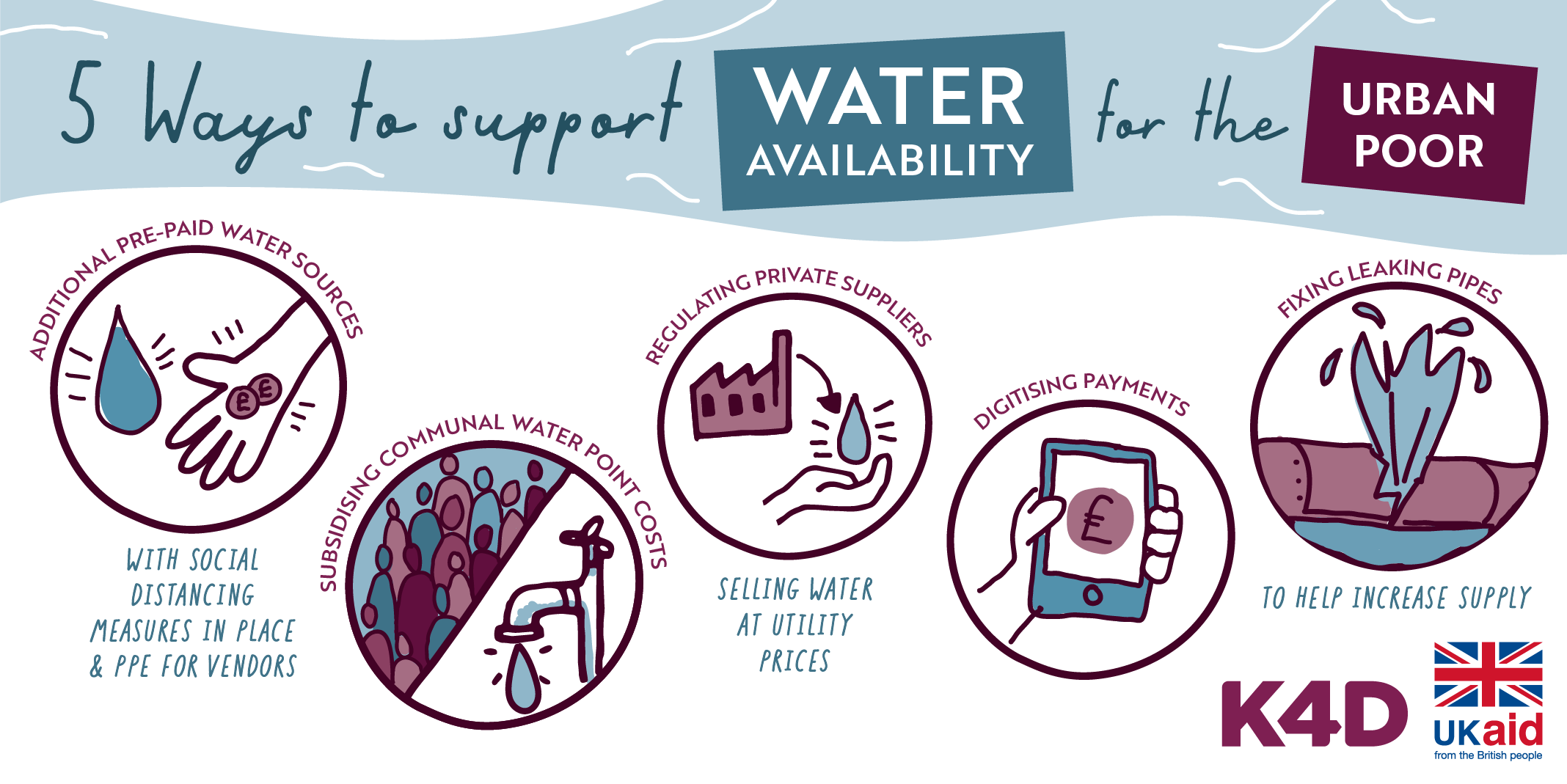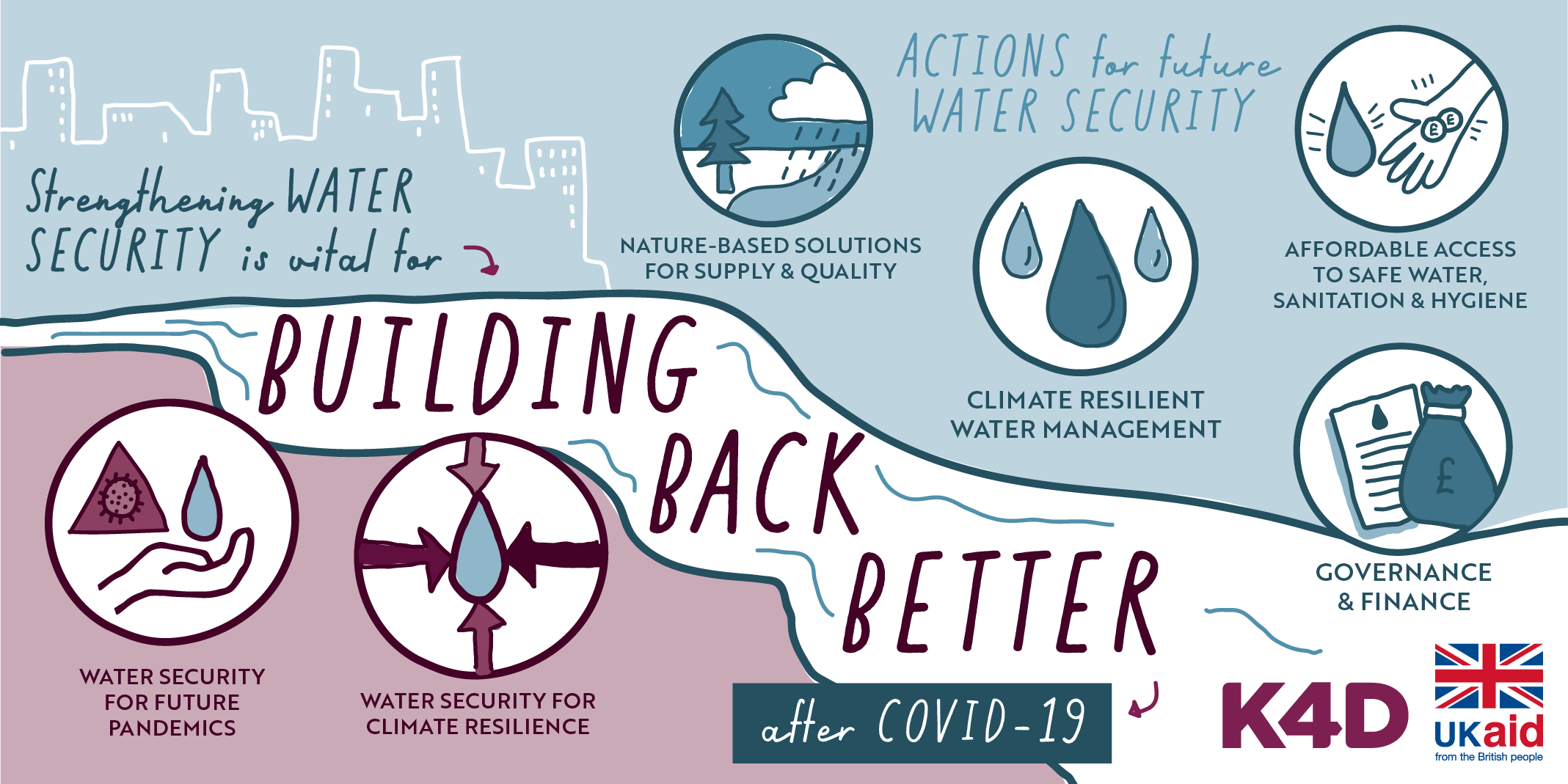Rachel Cooper, based at University of Birmingham, is a researcher on the K4D (Knowledge, Evidence and Learning) programme. She is currently leading a K4D Learning Journey on Water Security for the Department of International Development (DFID). The Learning Journey aims to increase DFID staff’s learning on water security and climate change.
This blog was originally posted by Institute Development Studies (IDS).
In Nairobi’s informal settlements nearly two out of three people do not have access to adequate water at home. This creates challenges for the physical distancing measures needed to suppress the spread of Covid-19 as people have to leave home to collect water. Globally, 2.2 billion people lack access to safe water at home, complicating the fight against Covid-19 in low- and middle-income countries. Increased handwashing is not possible without access to water. Governments and utilities face challenges in extending access to the poorest and opening up new water sources, particularly in areas already experiencing water scarcity or stress.

So what practical measures can increase access to water during the pandemic?
Practical measures to increase access to water during the Covid-19 pandemic include opening up additional pre-paid water sources using smart cards, vouchers and tokens to reduce human contact and help poor households manage spending on water. In Kampala, Uganda, the water utility is opening up an additional 100 public water points, with water charged at the public tap tariff. This tariff is cheaper than the household water tariff. Working with small private sector providers could fill gaps in service provision whilst ensuring that water is sold at regulated prices.
Digitising payments, which is being promoted by the Lilongwe Water Board in Malawi in response to Covid-19, can also reduce human contact and help poor households manage their water payments. It can also help to increase revenue collection for water utility companies. Fixing leaks is another cost-effective solution to increase water supply.
Water utilities are important for urban water supply. As of May 2020, eleven African governments had announced some form of free water provision during the current pandemic. In response, development partners, including the World Bank, are considering ways to support water utilities during the crisis so that they can keep the water flowing.

Building back better
The need to increase access to water during the Covid-19 pandemic also raises questions about where the water is going to come from, about equity, and how to leverage emergency WASH provision into sustainable gains. We also need to think about how to build back better and strengthen water security to support future pandemic preparedness.
Covid-19 is unfolding in a context of increasing water insecurity, driven by rising global water demand, population growth, urbanisation, land-use change and climate change, amongst other drivers. These drivers may also create conditions for future pandemics to occur. Water security is essential for healthy, resilient communities, societies and economies.
Key actions to support building back include nature-based solutions to improve water storage, supply and quality. For example, source water protection can improve water quality, reduce water treatment costs, and bring a range of co-benefits such as climate change adaptation: this is important as aid budgets may be reduced due to the economic effects of Covid-19.
Extending affordable access to WASH will require considering new solutions such as waterless toilets, and new service delivery models including container sanitation, which could support provision in informal settlements, as well as working to extend access to reliable and affordable piped water to the plot or house in the longer term. Digital tools, such as smart meters, can support sustainable water access for low-income customers and support service delivery.
Climate-resilient water management is needed to ensure that supply and storage solutions, institutions and decision-making are matched to a shifting climate and a dynamic and uncertain water cycle. New tools such as Climate Risk Informed Decision Analysis can support this. Strengthening water governance and stakeholder participation will also be important.

For further reading on this topic see the following K4D Helpdesk reports:
K4D Helpdesk Report 803 ‘Strengthening water security post Covid-19’
K4D Helpdesk Report 826 ‘Water for the urban poor and Covid-19’
